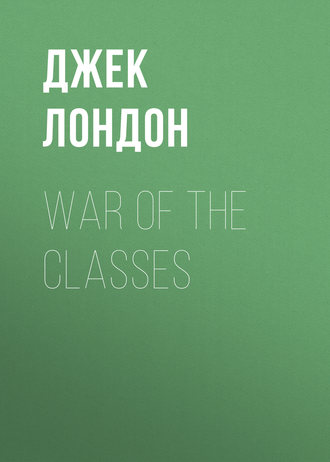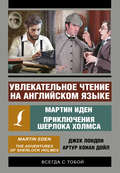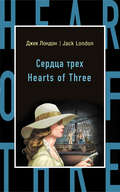
Джек Лондон
War of the Classes
***
Comes now the tramp. And all conclusions may be anticipated by saying at once that he is a tramp because some one has to be a tramp. If he left the “road” and became a very efficient common laborer, some ordinarily efficient common laborer would have to take to the “road.” The nooks and crannies are crowded by the surplus laborers; and when the first snow flies, and the tramps are driven into the cities, things become overcrowded and stringent police regulations are necessary.
The tramp is one of two kinds of men: he is either a discouraged worker or a discouraged criminal. Now a discouraged criminal, on investigation, proves to be a discouraged worker, or the descendant of discouraged workers; so that, in the last analysis, the tramp is a discouraged worker. Since there is not work for all, discouragement for some is unavoidable. How, then, does this process of discouragement operate?
The lower the employment in the industrial scale, the harder the conditions. The finer, the more delicate, the more skilled the trade, the higher is it lifted above the struggle. There is less pressure, less sordidness, less savagery. There are fewer glass-blowers proportionate to the needs of the glass-blowing industry than there are ditch-diggers proportionate to the needs of the ditch-digging industry. And not only this, for it requires a glass-blower to take the place of a striking glass-blower, while any kind of a striker or out-of-work can take the place of a ditch-digger. So the skilled trades are more independent, have more individuality and latitude. They may confer with their masters, make demands, assert themselves. The unskilled laborers, on the other hand, have no voice in their affairs. The settlement of terms is none of their business. “Free contract” is all that remains to them. They may take what is offered, or leave it. There are plenty more of their kind. They do not count. They are members of the surplus labor army, and must be content with a hand-to-mouth existence.
The reward is likewise proportioned. The strong, fit worker in a skilled trade, where there is little labor pressure, is well compensated. He is a king compared with his less fortunate brothers in the unskilled occupations where the labor pressure is great. The mediocre worker not only is forced to be idle a large portion of the time, but when employed is forced to accept a pittance. A dollar a day on some days and nothing on other days will hardly support a man and wife and send children to school. And not only do the masters bear heavily upon him, and his own kind struggle for the morsel at his mouth, but all skilled and organized labor adds to his woe. Union men do not scab on one another, but in strikes, or when work is slack, it is considered “fair” for them to descend and take away the work of the common laborers. And take it away they do; for, as a matter of fact, a well-fed, ambitious machinist or a core-maker will transiently shovel coal better than an ill-fed, spiritless laborer.
Thus there is no encouragement for the unfit, inefficient, and mediocre. Their very inefficiency and mediocrity make them helpless as cattle and add to their misery. And the whole tendency for such is downward, until, at the bottom of the social pit, they are wretched, inarticulate beasts, living like beasts, breeding like beasts, dying like beasts. And how do they fare, these creatures born mediocre, whose heritage is neither brains nor brawn nor endurance? They are sweated in the slums in an atmosphere of discouragement and despair. There is no strength in weakness, no encouragement in foul air, vile food, and dank dens. They are there because they are so made that they are not fit to be higher up; but filth and obscenity do not strengthen the neck, nor does chronic emptiness of belly stiffen the back.
For the mediocre there is no hope. Mediocrity is a sin. Poverty is the penalty of failure, – poverty, from whose loins spring the criminal and the tramp, both failures, both discouraged workers. Poverty is the inferno where ignorance festers and vice corrodes, and where the physical, mental, and moral parts of nature are aborted and denied.
That the charge of rashness in splashing the picture be not incurred, let the following authoritative evidence be considered: first, the work and wages of mediocrity and inefficiency, and, second, the habitat:
The New York Sun of February 28, 1901, describes the opening of a factory in New York City by the American Tobacco Company. Cheroots were to be made in this factory in competition with other factories which refused to be absorbed by the trust. The trust advertised for girls. The crowd of men and boys who wanted work was so great in front of the building that the police were forced with their clubs to clear them away. The wage paid the girls was $2.50 per week, sixty cents of which went for car fare. 4
Miss Nellie Mason Auten, a graduate student of the department of sociology at the University of Chicago, recently made a thorough investigation of the garment trades of Chicago. Her figures were published in the American Journal of Sociology, and commented upon by the Literary Digest. She found women working ten hours a day, six days a week, for forty cents per week (a rate of two-thirds of a cent an hour). Many women earned less than a dollar a week, and none of them worked every week. The following table will best summarize Miss Auten’s investigations among a portion of the garment-workers:

Walter A. Wyckoff, who is as great an authority upon the worker as Josiah Flynt is on the tramp, furnishes the following Chicago experience:
“Many of the men were so weakened by the want and hardship of the winter that they were no longer in condition for effective labor. Some of the bosses who were in need of added hands were obliged to turn men away because of physical incapacity. One instance of this I shall not soon forget. It was when I overheard, early one morning at a factory gate, an interview between a would-be laborer and the boss. I knew the applicant for a Russian Jew, who had at home an old mother and a wife and two young children to support. He had had intermittent employment throughout the winter in a sweater’s den, 5 barely enough to keep them all alive, and, after the hardships of the cold season, he was again in desperate straits for work.
“The boss had all but agreed to take him on for some sort of unskilled labor, when, struck by the cadaverous look of the man, he told him to bare his arm. Up went the sleeve of his coat and his ragged flannel shirt, exposing a naked arm with the muscles nearly gone, and the blue-white transparent skin stretched over sinews and the outlines of the bones. Pitiful beyond words was his effort to give a semblance of strength to the biceps which rose faintly to the upward movement of the forearm. But the boss sent him off with an oath and a contemptuous laugh; and I watched the fellow as he turned down the street, facing the fact of his starving family with a despair at his heart which only mortal man can feel and no mortal tongue can speak.”
Concerning habitat, Mr. Jacob Riis has stated that in New York City, in the block bounded by Stanton, Houston, Attorney, and Ridge streets, the size of which is 200 by 300, there is a warren of 2244 human beings.
In the block bounded by Sixty-first and Sixty-second streets, and Amsterdam and West End avenues, are over four thousand human creatures, – quite a comfortable New England village to crowd into one city block.
The Rev. Dr. Behrends, speaking of the block bounded by Canal, Hester, Eldridge, and Forsyth streets, says: “In a room 12 by 8 and 5½ feet high, it was found that nine persons slept and prepared their food… In another room, located in a dark cellar, without screens or partitions, were together two men with their wives and a girl of fourteen, two single men and a boy of seventeen, two women and four boys, – nine, ten, eleven, and fifteen years old, – fourteen persons in all.”
Here humanity rots. Its victims, with grim humor, call it “tenant-house rot.” Or, as a legislative report puts it: “Here infantile life unfolds its bud, but perishes before its first anniversary. Here youth is ugly with loathsome disease, and the deformities which follow physical degeneration.”
These are the men and women who are what they are because they were not better born, or because they happened to be unluckily born in time and space. Gauged by the needs of the system, they are weak and worthless. The hospital and the pauper’s grave await them, and they offer no encouragement to the mediocre worker who has failed higher up in the industrial structure. Such a worker, conscious that he has failed, conscious from the hard fact that he cannot obtain work in the higher employments, finds several courses open to him. He may come down and be a beast in the social pit, for instance; but if he be of a certain caliber, the effect of the social pit will be to discourage him from work. In his blood a rebellion will quicken, and he will elect to become either a felon or a tramp.
If he have fought the hard fight he is not unacquainted with the lure of the “road.” When out of work and still undiscouraged, he has been forced to “hit the road” between large cities in his quest for a job. He has loafed, seen the country and green things, laughed in joy, lain on his back and listened to the birds singing overhead, unannoyed by factory whistles and bosses’ harsh commands; and, most significant of all, he has lived! That is the point! He has not starved to death. Not only has he been care-free and happy, but he has lived! And from the knowledge that he has idled and is still alive, he achieves a new outlook on life; and the more he experiences the unenviable lot of the poor worker, the more the blandishments of the “road” take hold of him. And finally he flings his challenge in the face of society, imposes a valorous boycott on all work, and joins the far-wanderers of Hoboland, the gypsy folk of this latter day.
But the tramp does not usually come from the slums. His place of birth is ordinarily a bit above, and sometimes a very great bit above. A confessed failure, he yet refuses to accept the punishment, and swerves aside from the slum to vagabondage. The average beast in the social pit is either too much of a beast, or too much of a slave to the bourgeois ethics and ideals of his masters, to manifest this flicker of rebellion. But the social pit, out of its discouragement and viciousness, breeds criminals, men who prefer being beasts of prey to being beasts of work. And the mediocre criminal, in turn, the unfit and inefficient criminal, is discouraged by the strong arm of the law and goes over to trampdom.
These men, the discouraged worker and the discouraged criminal, voluntarily withdraw themselves from the struggle for work. Industry does not need them. There are no factories shut down through lack of labor, no projected railroads unbuilt for want of pick-and-shovel men. Women are still glad to toil for a dollar a week, and men and boys to clamor and fight for work at the factory gates. No one misses these discouraged men, and in going away they have made it somewhat easier for those that remain.
***
So the case stands thus: There being more men than there is work for men to do, a surplus labor army inevitably results. The surplus labor army is an economic necessity; without it, present society would fall to pieces. Into the surplus labor army are herded the mediocre, the inefficient, the unfit, and those incapable of satisfying the industrial needs of the system. The struggle for work between the members of the surplus labor army is sordid and savage, and at the bottom of the social pit the struggle is vicious and beastly. This struggle tends to discouragement, and the victims of this discouragement are the criminal and the tramp. The tramp is not an economic necessity such as the surplus labor army, but he is the by-product of an economic necessity.
The “road” is one of the safety-valves through which the waste of the social organism is given off. And being given off constitutes the negative function of the tramp. Society, as at present organized, makes much waste of human life. This waste must be eliminated. Chloroform or electrocution would be a simple, merciful solution of this problem of elimination; but the ruling ethics, while permitting the human waste, will not permit a humane elimination of that waste. This paradox demonstrates the irreconcilability of theoretical ethics and industrial need.
And so the tramp becomes self-eliminating. And not only self! Since he is manifestly unfit for things as they are, and since kind is prone to beget kind, it is necessary that his kind cease with him, that his progeny shall not be, that he play the eunuch’s part in this twentieth century after Christ. And he plays it. He does not breed. Sterility is his portion, as it is the portion of the woman on the street. They might have been mates, but society has decreed otherwise.
And, while it is not nice that these men should die, it is ordained that they must die, and we should not quarrel with them if they cumber our highways and kitchen stoops with their perambulating carcasses. This is a form of elimination we not only countenance but compel. Therefore let us be cheerful and honest about it. Let us be as stringent as we please with our police regulations, but for goodness’ sake let us refrain from telling the tramp to go to work. Not only is it unkind, but it is untrue and hypocritical. We know there is no work for him. As the scapegoat to our economic and industrial sinning, or to the plan of things, if you will, we should give him credit. Let us be just. He is so made. Society made him. He did not make himself.
THE SCAB
In a competitive society, where men struggle with one another for food and shelter, what is more natural than that generosity, when it diminishes the food and shelter of men other than he who is generous, should be held an accursed thing? Wise old saws to the contrary, he who takes from a man’s purse takes from his existence. To strike at a man’s food and shelter is to strike at his life; and in a society organized on a tooth-and-nail basis, such an act, performed though it may be under the guise of generosity, is none the less menacing and terrible.
It is for this reason that a laborer is so fiercely hostile to another laborer who offers to work for less pay or longer hours. To hold his place, (which is to live), he must offset this offer by another equally liberal, which is equivalent to giving away somewhat from the food and shelter he enjoys. To sell his day’s work for $2, instead of $2.50, means that he, his wife, and his children will not have so good a roof over their heads, so warm clothes on their backs, so substantial food in their stomachs. Meat will be bought less frequently and it will be tougher and less nutritious, stout new shoes will go less often on the children’s feet, and disease and death will be more imminent in a cheaper house and neighborhood.
Thus the generous laborer, giving more of a day’s work for less return, (measured in terms of food and shelter), threatens the life of his less generous brother laborer, and at the best, if he does not destroy that life, he diminishes it. Whereupon the less generous laborer looks upon him as an enemy, and, as men are inclined to do in a tooth-and-nail society, he tries to kill the man who is trying to kill him.
When a striker kills with a brick the man who has taken his place, he has no sense of wrong-doing. In the deepest holds of his being, though he does not reason the impulse, he has an ethical sanction. He feels dimly that he has justification, just as the home-defending Boer felt, though more sharply, with each bullet he fired at the invading English. Behind every brick thrown by a striker is the selfish will “to live” of himself, and the slightly altruistic will “to live” of his family. The family group came into the world before the State group, and society, being still on the primitive basis of tooth and nail, the will “to live” of the State is not so compelling to the striker as is the will “to live” of his family and himself.
In addition to the use of bricks, clubs, and bullets, the selfish laborer finds it necessary to express his feelings in speech. Just as the peaceful country-dweller calls the sea-rover a “pirate,” and the stout burgher calls the man who breaks into his strong-box a “robber,” so the selfish laborer applies the opprobrious epithet a “scab” to the laborer who takes from him food and shelter by being more generous in the disposal of his labor power. The sentimental connotation of “scab” is as terrific as that of “traitor” or “Judas,” and a sentimental definition would be as deep and varied as the human heart. It is far easier to arrive at what may be called a technical definition, worded in commercial terms, as, for instance, that a scab is one who gives more value for the same price than another.
The laborer who gives more time or strength or skill for the same wage than another, or equal time or strength or skill for a less wage, is a scab. This generousness on his part is hurtful to his fellow-laborers, for it compels them to an equal generousness which is not to their liking, and which gives them less of food and shelter. But a word may be said for the scab. Just as his act makes his rivals compulsorily generous, so do they, by fortune of birth and training, make compulsory his act of generousness. He does not scab because he wants to scab. No whim of the spirit, no burgeoning of the heart, leads him to give more of his labor power than they for a certain sum.
It is because he cannot get work on the same terms as they that he is a scab. There is less work than there are men to do work. This is patent, else the scab would not loom so large on the labor-market horizon. Because they are stronger than he, or more skilled, or more energetic, it is impossible for him to take their places at the same wage. To take their places he must give more value, must work longer hours or receive a smaller wage. He does so, and he cannot help it, for his will “to live” is driving him on as well as they are being driven on by their will “to live”; and to live he must win food and shelter, which he can do only by receiving permission to work from some man who owns a bit of land or a piece of machinery. And to receive permission from this man, he must make the transaction profitable for him.
Viewed in this light, the scab, who gives more labor power for a certain price than his fellows, is not so generous after all. He is no more generous with his energy than the chattel slave and the convict laborer, who, by the way, are the almost perfect scabs. They give their labor power for about the minimum possible price. But, within limits, they may loaf and malinger, and, as scabs, are exceeded by the machine, which never loafs and malingers and which is the ideally perfect scab.
It is not nice to be a scab. Not only is it not in good social taste and comradeship, but, from the standpoint of food and shelter, it is bad business policy. Nobody desires to scab, to give most for least. The ambition of every individual is quite the opposite, to give least for most; and, as a result, living in a tooth-and-nail society, battle royal is waged by the ambitious individuals. But in its most salient aspect, that of the struggle over the division of the joint product, it is no longer a battle between individuals, but between groups of individuals. Capital and labor apply themselves to raw material, make something useful out of it, add to its value, and then proceed to quarrel over the division of the added value. Neither cares to give most for least. Each is intent on giving less than the other and on receiving more.
Labor combines into its unions, capital into partnerships, associations, corporations, and trusts. A group-struggle is the result, in which the individuals, as individuals, play no part. The Brotherhood of Carpenters and Joiners, for instance, serves notice on the Master Builders’ Association that it demands an increase of the wage of its members from $3.50 a day to $4, and a Saturday half-holiday without pay. This means that the carpenters are trying to give less for more. Where they received $21 for six full days, they are endeavoring to get $22 for five days and a half, – that is, they will work half a day less each week and receive a dollar more.
Also, they expect the Saturday half-holiday to give work to one additional man for each eleven previously employed. This last affords a splendid example of the development of the group idea. In this particular struggle the individual has no chance at all for life. The individual carpenter would be crushed like a mote by the Master Builders’ Association, and like a mote the individual master builder would be crushed by the Brotherhood of Carpenters and Joiners.
In the group-struggle over the division of the joint product, labor utilizes the union with its two great weapons, the strike and the boycott; while capital utilizes the trust and the association, the weapons of which are the black-list, the lockout, and the scab. The scab is by far the most formidable weapon of the three. He is the man who breaks strikes and causes all the trouble. Without him there would be no trouble, for the strikers are willing to remain out peacefully and indefinitely so long as other men are not in their places, and so long as the particular aggregation of capital with which they are fighting is eating its head off in enforced idleness.
But both warring groups have reserve weapons. Were it not for the scab, these weapons would not be brought into play. But the scab takes the place of the striker, who begins at once to wield a most powerful weapon, terrorism. The will “to live” of the scab recoils from the menace of broken bones and violent death. With all due respect to the labor leaders, who are not to be blamed for volubly asseverating otherwise, terrorism is a well-defined and eminently successful policy of the labor unions. It has probably won them more strikes than all the rest of the weapons in their arsenal. This terrorism, however, must be clearly understood. It is directed solely against the scab, placing him in such fear for life and limb as to drive him out of the contest. But when terrorism gets out of hand and inoffensive non-combatants are injured, law and order threatened, and property destroyed, it becomes an edged tool that cuts both ways. This sort of terrorism is sincerely deplored by the labor leaders, for it has probably lost them as many strikes as have been lost by any other single cause.
The scab is powerless under terrorism. As a rule, he is not so good nor gritty a man as the men he is displacing, and he lacks their fighting organization. He stands in dire need of stiffening and backing. His employers, the capitalists, draw their two remaining weapons, the ownership of which is debatable, but which they for the time being happen to control. These two weapons may be called the political and judicial machinery of society. When the scab crumples up and is ready to go down before the fists, bricks, and bullets of the labor group, the capitalist group puts the police and soldiers into the field, and begins a general bombardment of injunctions. Victory usually follows, for the labor group cannot withstand the combined assault of gatling guns and injunctions.
But it has been noted that the ownership of the political and judicial machinery of society is debatable. In the Titanic struggle over the division of the joint product, each group reaches out for every available weapon. Nor are they blinded by the smoke of conflict. They fight their battles as coolly and collectedly as ever battles were fought on paper. The capitalist group has long since realized the immense importance of controlling the political and judicial machinery of society.
Taught by gatlings and injunctions, which have smashed many an otherwise successful strike, the labor group is beginning to realize that it all depends upon who is behind and who is before the gatlings and the injunctions. And he who knows the labor movement knows that there is slowly growing up and being formulated a clear and definite policy for the capture of the political and judicial machinery.
This is the terrible spectre which Mr. John Graham Brooks sees looming portentously over the twentieth century world. No man may boast a more intimate knowledge of the labor movement than he; and he reiterates again and again the dangerous likelihood of the whole labor group capturing the political machinery of society. As he says in his recent book: 6 “It is not probable that employers can destroy unionism in the United States. Adroit and desperate attempts will, however, be made, if we mean by unionism the undisciplined and aggressive fact of vigorous and determined organizations. If capital should prove too strong in this struggle, the result is easy to predict. The employers have only to convince organized labor that it cannot hold its own against the capitalist manager, and the whole energy that now goes to the union will turn to an aggressive political socialism. It will not be the harmless sympathy with increased city and state functions which trade unions already feel; it will become a turbulent political force bent upon using every weapon of taxation against the rich.”
This struggle not to be a scab, to avoid giving more for less and to succeed in giving less for more, is more vital than it would appear on the surface. The capitalist and labor groups are locked together in desperate battle, and neither side is swayed by moral considerations more than skin-deep. The labor group hires business agents, lawyers, and organizers, and is beginning to intimidate legislators by the strength of its solid vote; and more directly, in the near future, it will attempt to control legislation by capturing it bodily through the ballot-box. On the other hand, the capitalist group, numerically weaker, hires newspapers, universities, and legislatures, and strives to bend to its need all the forces which go to mould public opinion.
The only honest morality displayed by either side is white-hot indignation at the iniquities of the other side. The striking teamster complacently takes a scab driver into an alley, and with an iron bar breaks his arms, so that he can drive no more, but cries out to high Heaven for justice when the capitalist breaks his skull by means of a club in the hands of a policeman. Nay, the members of a union will declaim in impassioned rhetoric for the God-given right of an eight-hour day, and at the time be working their own business agent seventeen hours out of the twenty-four.
A capitalist such as Collis P. Huntington, and his name is Legion, after a long life spent in buying the aid of countless legislatures, will wax virtuously wrathful, and condemn in unmeasured terms “the dangerous tendency of crying out to the Government for aid” in the way of labor legislation. Without a quiver, a member of the capitalist group will run tens of thousands of pitiful child-laborers through his life-destroying cotton factories, and weep maudlin and constitutional tears over one scab hit in the back with a brick. He will drive a “compulsory” free contract with an unorganized laborer on the basis of a starvation wage, saying, “Take it or leave it,” knowing that to leave it means to die of hunger, and in the next breath, when the organizer entices that laborer into a union, will storm patriotically about the inalienable right of all men to work. In short, the chief moral concern of either side is with the morals of the other side. They are not in the business for their moral welfare, but to achieve the enviable position of the non-scab who gets more than he gives.
But there is more to the question than has yet been discussed. The labor scab is no more detestable to his brother laborers than is the capitalist scab to his brother capitalists. A capitalist may get most for least in dealing with his laborers, and in so far be a non-scab; but at the same time, in his dealings with his fellow-capitalists, he may give most for least and be the very worst kind of scab. The most heinous crime an employer of labor can commit is to scab on his fellow-employers of labor. Just as the individual laborers have organized into groups to protect themselves from the peril of the scab laborer, so have the employers organized into groups to protect themselves from the peril of the scab employer. The employers’ federations, associations, and trusts are nothing more nor less than unions. They are organized to destroy scabbing amongst themselves and to encourage scabbing amongst others. For this reason they pool interests, determine prices, and present an unbroken and aggressive front to the labor group.
As has been said before, nobody likes to play the compulsorily generous role of scab. It is a bad business proposition on the face of it. And it is patent that there would be no capitalist scabs if there were not more capital than there is work for capital to do. When there are enough factories in existence to supply, with occasional stoppages, a certain commodity, the building of new factories by a rival concern, for the production of that commodity, is plain advertisement that that capital is out of a job. The first act of this new aggregation of capital will be to cut prices, to give more for less, – in short to scab, to strike at the very existence of the less generous aggregation of capital the work of which it is trying to do.
No scab capitalist strives to give more for less for any other reason than that he hopes, by undercutting a competitor and driving that competitor out of the market, to get that market and its profits for himself. His ambition is to achieve the day when he shall stand alone in the field both as buyer and seller, – when he will be the royal non-scab, buying most for least, selling least for most, and reducing all about him, the small buyers and sellers, (the consumers and the laborers), to a general condition of scabdom. This, for example, has been the history of Mr. Rockefeller and the Standard Oil Company. Through all the sordid villanies of scabdom he has passed, until today he is a most regal non-scab. However, to continue in this enviable position, he must be prepared at a moment’s notice to go scabbing again. And he is prepared. Whenever a competitor arises, Mr. Rockefeller changes about from giving least for most and gives most for least with such a vengeance as to drive the competitor out of existence.







